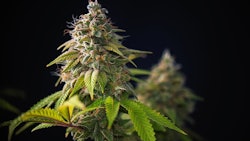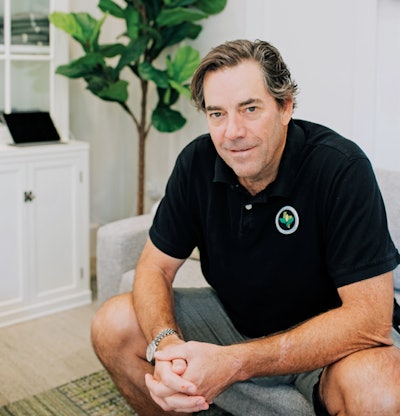
After nine months of careful planning and tedious work, Compassionate Cultivation opened its doors in Manchaca, Texas, on Feb. 8, 2018, welcoming more than 200 patients and serving its first: a 2-year-old boy with intractable epilepsy—which is the only medical condition the state of Texas allows to be treated with medical cannabis.
“We have patients of all ages and sizes,” says Compassionate Cultivation CEO Morris Denton, “so we knew we’d have a large group of pediatric patients.” But, Denton continues, “there is really nothing that can prepare you for seeing a small child and their family pull up to the dispensary.” It was an overwhelming experience, but one that Compassionate Cultivation is almost used to now. “Some of our patients have had seizures in our facility,” Denton describes. “We have watched mothers comfort their kids—help their kids—through their seizures. It’s one of the most powerful things I’ve ever witnessed. It grounds you in a way that is unexpected and indescribable.”
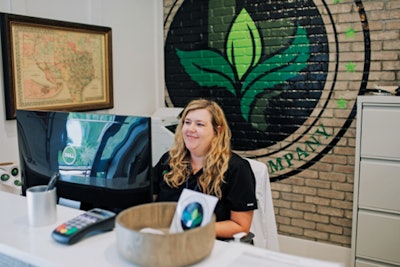
Challenges of Being First to Market
Opening the dispensary was an arduous process. The application for its provisional license was a whopping 300 pages. “[The time] from when we put in our application, until when we received our final license, represented nine months of the most provoking and challenging work I’ve ever done: time-consuming, ever-changing, complex and ongoing,” says Denton. And then, he adds, “Once we got our final license and planted our first seeds, the work was just beginning.”
Finding a bank that would work with Compassionate Cultivation—the state’s first dispensary—was especially trying. “Part of the challenge in running a cannabis-based medicine [business] is finding the right merchant banking solution,” Denton explains, defining a merchant bank as a financial institution that provides credit card systems and platforms that allow businesses to accept credit card and debit card payments. “In most mainstream businesses, merchant banks charge a small transaction fee for their services,” says Denton. “But in the cannabis industry—even for businesses that only sell medicine to people with a prescription—these merchant banks charge extraordinary fees, upwards of 5 percent to 10 percent, plus other fees tacked on. They claim it’s because of the additional scrutiny from a regulatory perspective. … So, we’re always on high alert when dealing with merchant banks.”
The Lone Star State Spotlight
Denton and his four business partners knew the challenges they faced when they applied for the company’s provisional license in May 2017, but they couldn’t be dissuaded from pursuing a business they were each so passionate about, Denton says. “What attracted me to the cannabis space was the opportunity to not only participate in, but lead, a business and industry that could be transformational in Texas across political, business, economic, ethical, moral and medical spectrums,” he explains. And transformational it has been.
Looking back on its first day of business, Denton calls the moment “historic.” He says, “… Being the first retail dispensary in the state of Texas—it was a big deal, and our whole team felt the importance and wanted our business to reflect well.” He adds, “Besides, we want our brand and our business to be seen as the gold standard in Texas, and in order to do that, we have to be top notch. It’s very important to us that we set a high standard, a tough bar, for our competitors and challengers to face.”
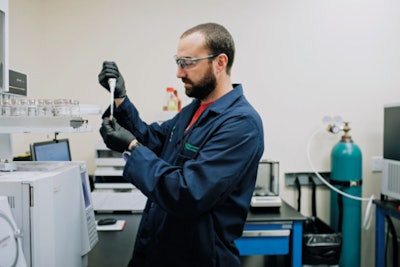
As you might expect, Texas is a difficult state in which to operate a cannabis business. “Texas is very conservative, politically,” Denton says, and so, “we have a lot of people that are interested in what we’re doing and how we’re doing it. Because we operate in a fish-bowl-like environment, we have to run our business with transparency and integrity. There’s a very small margin for error here, and we recognize that and take on that responsibility.”
Compassionate Cultivation ensures it maintains the highest standards by growing its own cannabis from seeds in its 7,200-square-foot indoor facility. “We do everything in-house, from [planting] seeds to cultivating and [using] our solvent-free CO2 extraction system to produce the tincture, then dispensing,” Denton explains. “We control 100 percent of the product every step of the way, including the environment in which it is grown and extracted.”
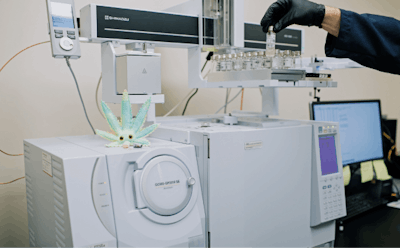
When it tests its products—which Compassionate Cultivation does in-house, as well as through a third party to be compliant—it posts the test results on its website, Denton says. “Each batch of our product goes through state-of-the-art testing to make sure the medicine we’re offering patients is free from heavy metals, microbials and chemical contaminants,” he says, adding, “[We] have the tools, systems and people to hit extraordinarily high standards. We share all the information they need about the cannabidiol products they’re consuming.”
1.8 percent: Approximate percentage of Texans diagnosed with epilepsy, according to Epilepsy Foundation Central & South Texas
The Dispensary Experience
Inside Compassionate Cultivation, patients find what Denton describes as a welcoming environment, developed by an Arizona designer who specializes in medical dispensaries. “She helped us translate the input we gathered from focus groups that we conducted,” says Denton. “One of the things that really stood out from these sessions was learning that when a person with epilepsy enters a room for the first time, they scan the room to see where it would be safe for them to have a seizure, and then they’ll gravitate toward that area.” With that information, Compassionate Cultivation added “soft furniture, round counter tops, so on,” he says. “We tried to create an environment where all patients feel comfortable, a place that feels more like a spa or wellness facility than a dispensary.”
Patients enjoy Compassionate Cultivation’s cherry tincture, which is offered in three sizes, including 7.5 mL, 15 mL, and 30 mL, Denton says, adding that the company will introduce additional products in the next three months. In addition to its cherry flavor, Compassionate Cultivation offers mint and plain MCT oil; it also offers a safflower oil, “made for people with nut allergies,” Denton explains.
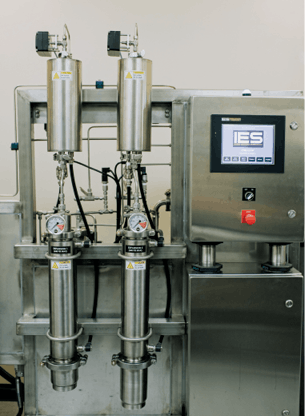
In order for its patients to receive the medication they need, Compassionate Cultivation tries to keep its tincture prices low. “We’re well aware that this treatment isn’t covered by insurance, and payment comes directly out of people’s pockets, so we have the lowest-price legal option in Texas,” Denton explains. “We also created the Compassionate Patient assistance program, which provides funding to the Epilepsy Foundation of Central and Southwest Texas and Epilepsy Foundation Texas.” Through those foundations, “the idea is to subsidize the cost for patients with a demonstrated financial disadvantage,” Denton says.
And yet, Compassionate Cultivation wants to do even more for its patients. “We are still at the very beginning of our work in Texas,” Denton says. “Our intention is to work side-by-side with legislators and the medical community to ensure that we lead the cannabis industry to future growth based on solid footing and a strong foundation in Texas.”










